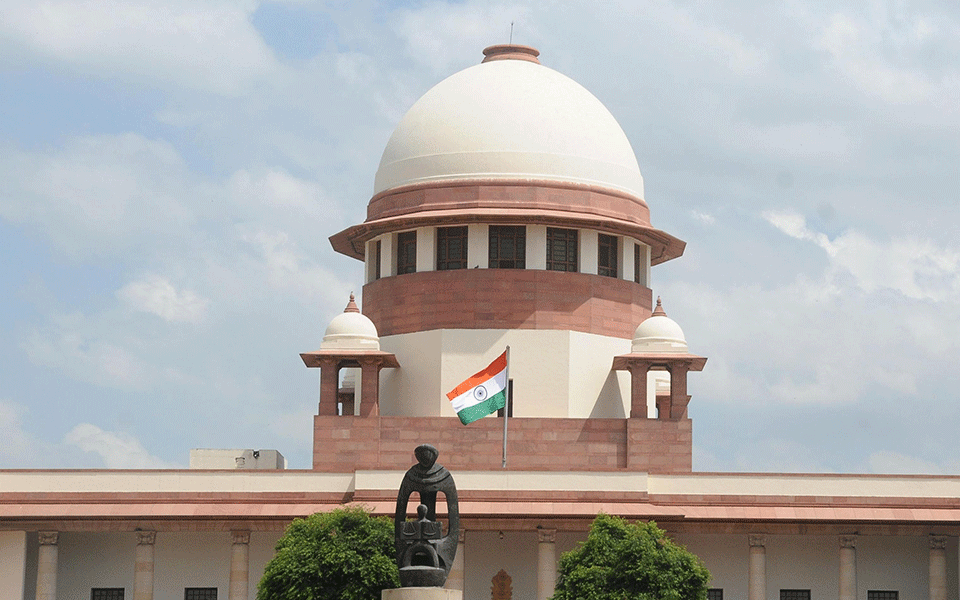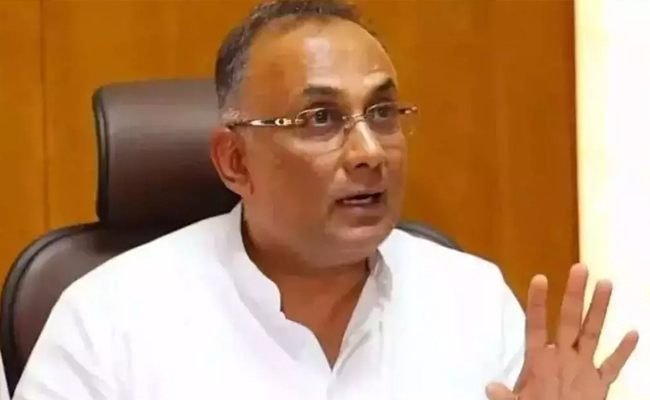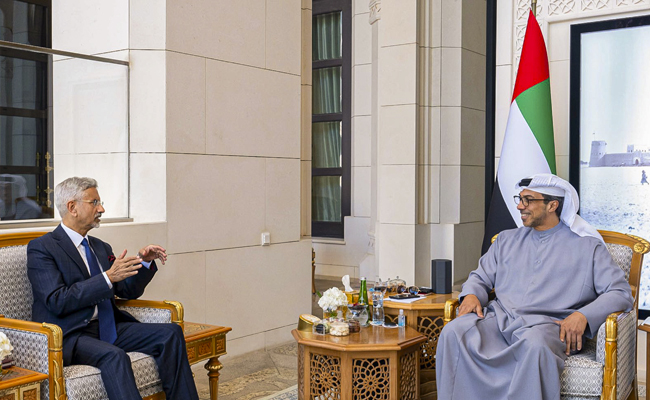New Delhi, Aug 28 : "If Taj Mahal goes, you will not get a second chance," the Supreme Court said on Tuesday while urging the authorities to see the larger perspective while dealing with the issue of the monument's protection in Agra.
A bench of Justice Madan B. Lokur, Justice S. Abdul Nazeer and Justice Deepak Gupta asked the authorities to prepare a Vision Document on protection and preservation of the Taj taking into account suggestion of experts and issues like pollution in the Taj Trapezium Zone (TTZ).
TTZ is an area of about 10,400 sq km spread over the districts of Agra, Firozabad, Mathura, Hathras and Etah in Uttar Pradesh and Bharatpur district of Rajasthan.
The court asked Meenakshi Dhote of Delhi's School of Architecture and project coordinator of the Vision Document to "go slowly but steadily" and prepare the document "keeping the larger picture in mind along with suggestions of experts".
The bench asked Dhote to inform the court if she faced any problems.
The court also asked environmentalist M.C. Mehta, the petitioner, to give his suggestion within a week.
During the hearing, the Centre told the court that it had communicated to the Uttar Pradesh government to send a proposal to declare Agra as a heritage city.
The Centre also told the court that the Archaeological Survey of India (ASI) was in the process of preparing a heritage plan for the 17th century Taj Mahal and it would be filed with the UNESCO within three months.
The bench asked the Uttar Pradesh government to keep in mind the pollution level, condition of Yamuna river, restaurants and hotels and industries in the TTZ area.
"How many industries are there? Several things have come up. Are you looking into it? You have to see what's the damage done by restaurants, hotels and whether to continue them or not."
Dhote said they were given an incorrect list of industries.
At this, the bench remarked: "See, you (Uttar Pradesh government) gave wrong information. So draft vision document is not correct. We are concerned about this."
Recently, the Uttar Pradesh government submitted its first draft report of its Vision Document on protection and preservation of the Taj to the court, suggesting that the entire Taj Mahal precinct should be declared a no-plastic zone and all polluting industries in the region must be closed.
It suggested that the use of bottled water inside the monument should be prohibited.
For not being able to protect the iconic Taj, which is turning yellow, the bench had even asked the Centre and Uttar Pradesh governments to "shut it down" or "demolish or restore" the Mughal structure.
The court has been hearing a plea filed by M.C. Mehta seeking protection of the Taj from the ill-effects of polluting gases and deforestation in and around the area.
The bench has posted the matter for further hearing on September 25.
Let the Truth be known. If you read VB and like VB, please be a VB Supporter and Help us deliver the Truth to one and all.
New Delhi: A bill to set up a 13-member body to regulate institutions of higher education was introduced in the Lok Sabha on Monday.
Union Education Minister Dharmendra Pradhan introduced the Viksit Bharat Shiksha Adhishthan Bill, which seeks to establish an overarching higher education commission along with three councils for regulation, accreditation, and ensuring academic standards for universities and higher education institutions in India.
Meanwhile, the move drew strong opposition, with members warning that it could weaken institutional autonomy and result in excessive centralisation of higher education in India.
The Viksit Bharat Shiksha Adhishthan Bill, 2025, earlier known as the Higher Education Council of India (HECI) Bill, has been introduced in line with the National Education Policy (NEP) 2020.
The proposed legislation seeks to merge three existing regulatory bodies, the University Grants Commission (UGC), the All India Council for Technical Education (AICTE), and the National Council for Teacher Education (NCTE), into a single unified body called the Viksit Bharat Shiksha Adhishthan.
At present, the UGC regulates non-technical higher education institutions, the AICTE oversees technical education, and the NCTE governs teacher education in India.
Under the proposed framework, the new commission will function through three separate councils responsible for regulation, accreditation, and the maintenance of academic standards across universities and higher education institutions in the country.
According to the Bill, the present challenges faced by higher educational institutions due to the multiplicity of regulators having non-harmonised regulatory approval protocols will be done away with.
The higher education commission, which will be headed by a chairperson appointed by the President of India, will cover all central universities and colleges under it, institutes of national importance functioning under the administrative purview of the Ministry of Education, including IITs, NITs, IISc, IISERs, IIMs, and IIITs.
At present, IITs and IIMs are not regulated by the University Grants Commission (UGC).
Government to refer bill to JPC; Oppn slams it
The government has expressed its willingness to refer it to a joint committee after several members of the Lok Sabha expressed strong opposition to the Bill, stating that they were not given time to study its provisions.
Responding to the opposition, Parliamentary Affairs Minister Kiren Rijiju said the government intends to refer the Bill to a Joint Parliamentary Committee (JPC) for detailed examination.
Congress Lok Sabha MP Manish Tewari warned that the Bill could result in “excessive centralisation” of higher education. He argued that the proposed law violates the constitutional division of legislative powers between the Union and the states.
According to him, the Bill goes beyond setting academic standards and intrudes into areas such as administration, affiliation, and the establishment and closure of university campuses. These matters, he said, fall under Entry 25 of the Concurrent List and Entry 32 of the State List, which cover the incorporation and regulation of state universities.
Tewari further stated that the Bill suffers from “excessive delegation of legislative power” to the proposed commission. He pointed out that crucial aspects such as accreditation frameworks, degree-granting powers, penalties, institutional autonomy, and even the supersession of institutions are left to be decided through rules, regulations, and executive directions. He argued that this amounts to a violation of established constitutional principles governing delegated legislation.
Under the Bill, the regulatory council will have the power to impose heavy penalties on higher education institutions for violating provisions of the Act or related rules. Penalties range from ₹10 lakh to ₹75 lakh for repeated violations, while establishing an institution without approval from the commission or the state government could attract a fine of up to ₹2 crore.
Concerns were also raised by members from southern states over the Hindi nomenclature of the Bill. N.K. Premachandran, an MP from the Revolutionary Socialist Party representing Kollam in Kerala, said even the name of the Bill was difficult to pronounce.
He pointed out that under Article 348 of the Constitution, the text of any Bill introduced in Parliament must be in English unless Parliament decides otherwise.
DMK MP T.M. Selvaganapathy also criticised the government for naming laws and schemes only in Hindi. He said the Constitution clearly mandates that the nomenclature of a Bill should be in English so that citizens across the country can understand its intent.
Congress MP S. Jothimani from Tamil Nadu’s Karur constituency described the Bill as another attempt to impose Hindi and termed it “an attack on federalism.”



_vb_22.jpeg)

